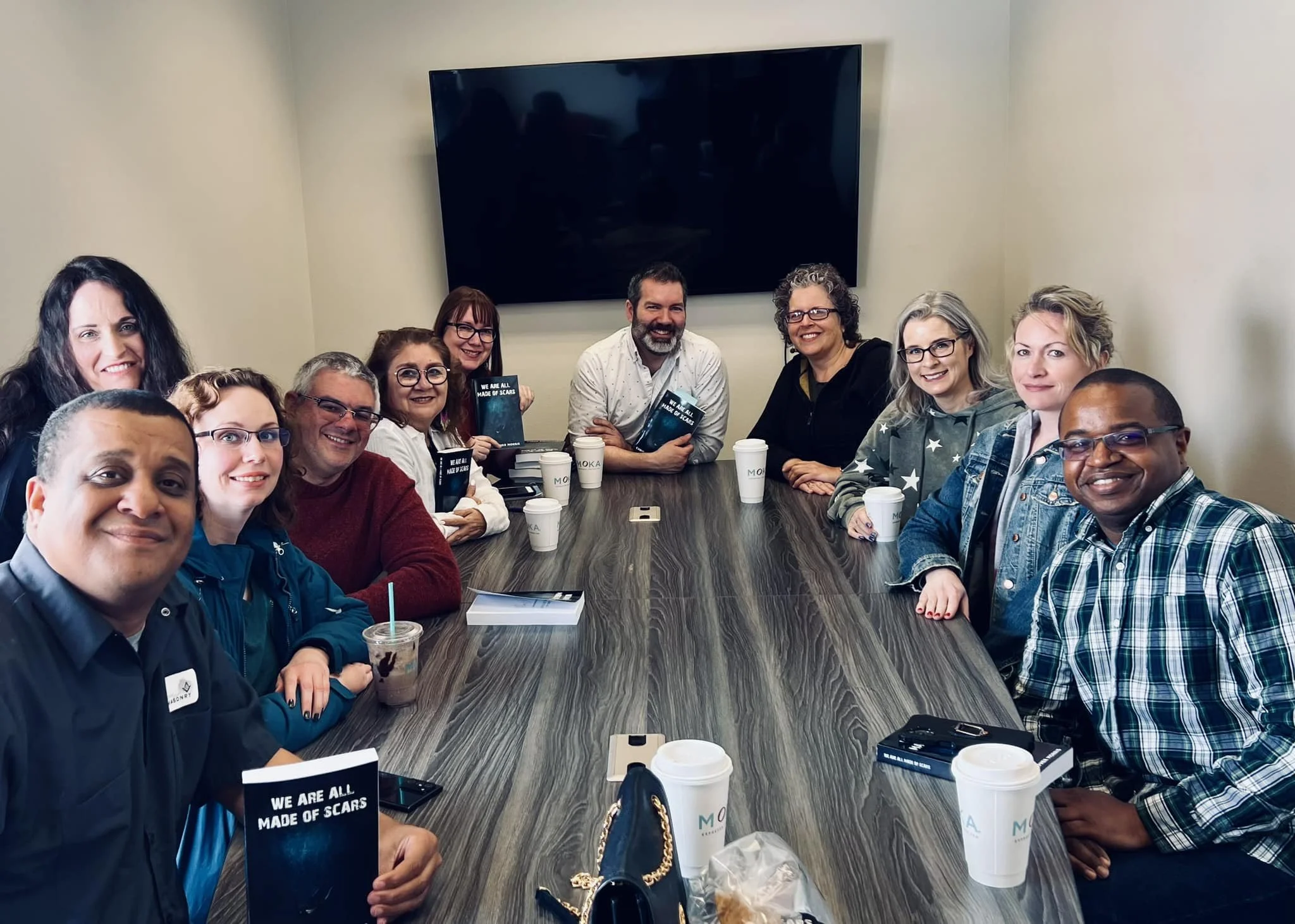Discussion Questions
Perfect for book clubs, school assignments & more!
Chris chose to tell his story in first-person present-tense, as if you are there. How was that more compelling?
How does the title of the book relate to the overall work?
In what ways did Chris try to escape from his problems at home throughout the book?
What events erode or confuse Chris’ trust in the adults in his life?
Was there an interaction between Chris and his mother that stood out to you the most? What was it about that event affected you?
How did Chris’ upbringing and being of modest means affect his teenage years in the book? What about his adult life?
During the events of the book, we see a lot of friends and girls come in and out of Chris’ life. Why is that notable?
Similarly, Chris also moves from job to job a lot in the book. Why do you think that is?
Throughout his teen years, Chris goes from wanting to be like the “normal” kids and families, while also resenting them. Talk about that paradox and where you see each come through in the book.
Music is prominent in the book and in Chris’ life. What role does it play?
Certain events in Chris’ life almost “rhyme” and mirror each other in different ways such as his scars, the date he left for the army, passing out on the stairs, etc. Discuss the different ways those instances occurred in the book and what they meant. Has anything like this happened to you?
How is Chris’ grandmother’s (Nana Madge) alcoholism different than his mother’s alcoholism? How is it similar?
In some ways, Chris’ descent into drugs and darkness in his teen years parallels that of his mother’s deepened addiction. Discuss why that is and if you think that is common among children of alcoholics. What do you think would’ve happened if Chris didn’t join the Army?
Throughout the book Chris spends an increasing amount of time having to take care of his mom or do errands for her, eventually reaching a point where he has to say “no,” which led to her becoming more desperate, upset and in the hospital. Discuss this and if you think this is common in families of those struggling with addictions.
In the epilogue Chris talks about being more upset about the disease of alcoholism, not his mother. Why is that important?
Later in life Chris realizes “no one had a perfect childhood.” Do you agree with that statement? Why or why not?
If this book was made into a movie, who would you want to see cast as Chris, his mom or stepdad?
Do you feel the book has a happy ending? How does it not?
What did you take away from the book’s epilogue? What was most impactful to you to apply to your own life?
The book gives an honest “peek behind the curtain” of an alcoholic home. Why don’t we talk more about addiction or see stories like this in modern media?
